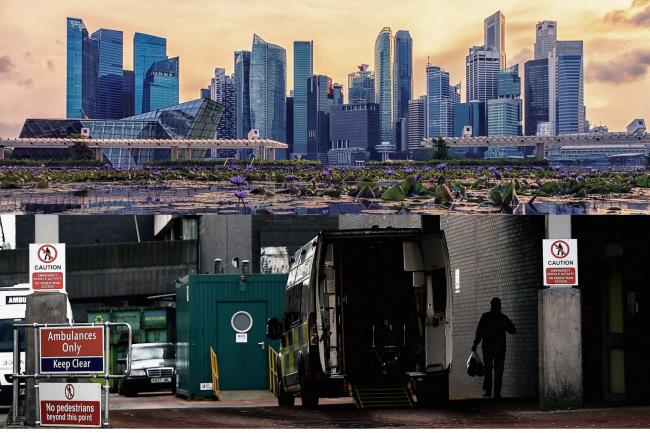Asit K. Biswas
THE HERALD | February 19, 2021

WHEN my wife was offered a professional position at the University of Glasgow, an important consideration for a move from Singapore to Glasgow was the quality of medical services. We had read that medical services provided by the NHS were not as high as in Singapore, which is considered to be one of the world’s best. We moved to Glasgow in mid-November.
Six weeks after our move to Glasgow, we sampled the quality of medical care when I slipped on an icy street, hit my head on the pavement and suffered a gash in my skull.
My wife called an ambulance. She was told someone would call to tell us when an ambulance could come. I was bleeding from the head. We took a taxi to the Royal Infirmary. Some 90 minutes later someone called to discuss our ambulance requirement.
At A&E, a nurse examined me within 10 minutes. She cleaned the wound. That day, A&E was busier than normal since many people had had falls and had all types of injuries. She explained I would have to wait for an hour since they were looking after patients who had more serious injuries.
Every 10-12 minutes, a nurse checked how I was feeling. After some 55 minutes, a doctor arrived and put five staples on my head. I was sent for a CT scan to check if there was any internal injury. Ten minutes after the scan, the doctor informed me everything was fine, and he had briefed my wife and asked her to come and take me home. I was in A&E less than two hours.
How does this compare with Singapore? Waiting for 90 minutes to learn when an ambulance may be available is unacceptable in Singapore. The average wait is 20-25 minutes.
Time required for initial diagnosis in A&E and to see a doctor, was similar to Singapore, as was overall duration of my stay and quality of medical care.
Glasgow excelled in terms of warmth and kindness of everyone that I met. Also, every 10-15 minutes, someone came to let me know the doctor would see me soon. The reassurance, when one was anxious, was appreciated. Glasgow fared better than Singapore in these areas.
Singapore has a remarkably efficient health care system, though, in 2018, it spent only 4.46 per cent of its GDP. UK that year spent 10% of GDP, and the US 16%.
Singapore has built a high-quality health care system at a much lower cost. Its system delivers good health care by focusing on quality, efficiency and cost. All stakeholders share responsibilities for having good, affordable and accessible health care. These goals are accomplished by encouraging competition between public and private medical services to constantly improve efficiencies.
My experience indicates that Glasgow has a good medical service but the NHS appears to have under-invested in items like instruments and ambulance services.
Given that the UK’s medical expenditure, as percentage of GDP, is more than twice that of Singapore, it would be worthwhile to examine to what extent some Singaporean practices can be incorporated to reduce costs and improve efficiencies.
Asit K Biswas is the Distinguished Visiting Professor at the University of Glasgow. He relocated to Glasgow in mid-November 2020.
This article was published by THE HERALD, February 19, 2021.